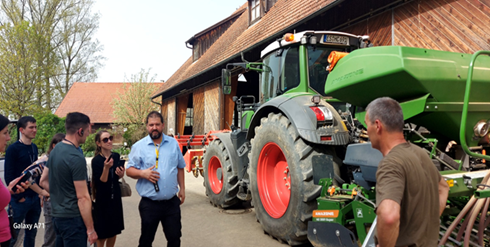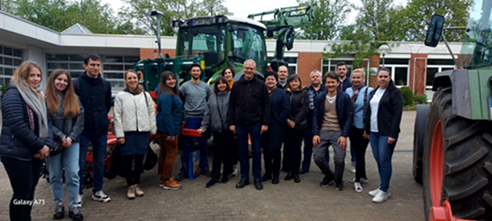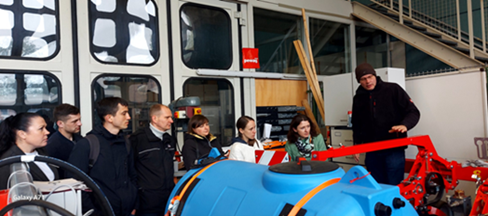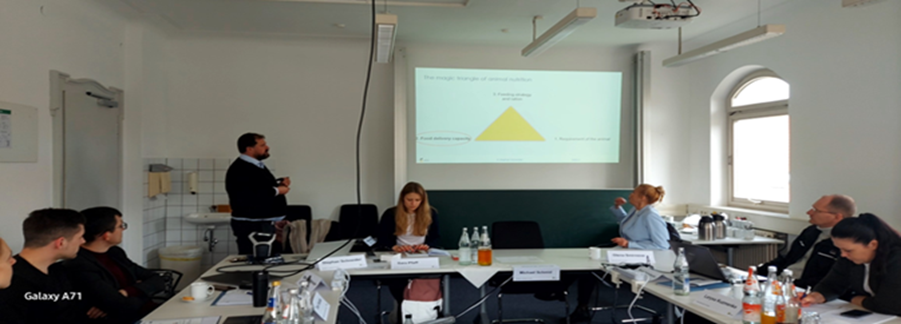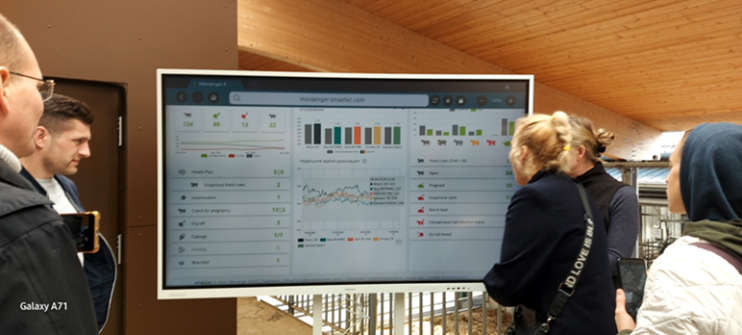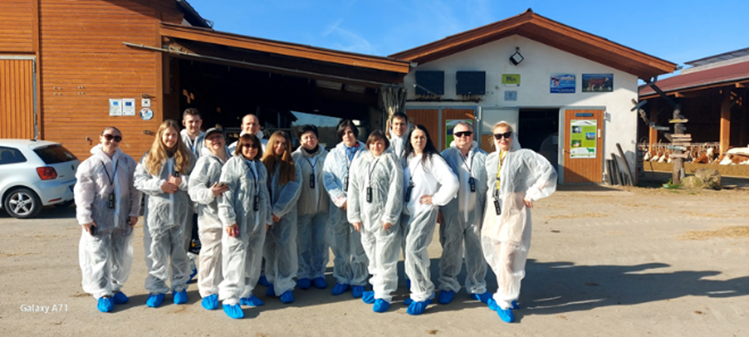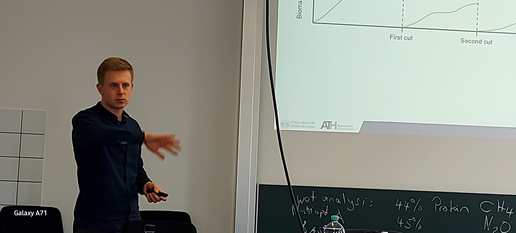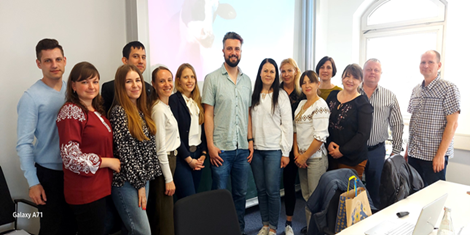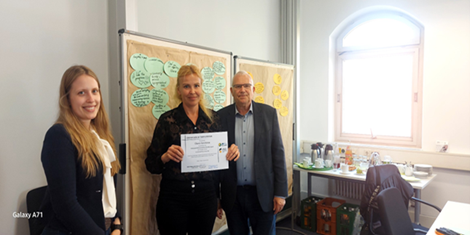Study visit to the University of Nürtingen-Gaislingen (Germany)
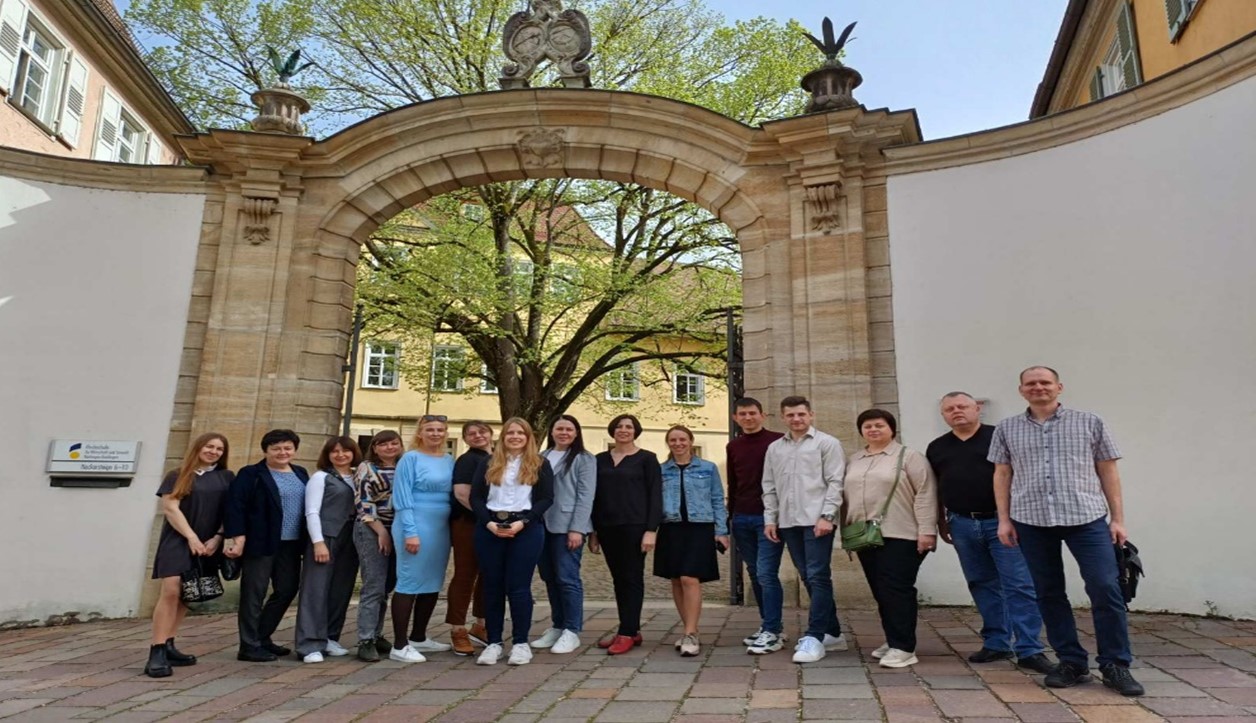
As part of the implementation of the Erasmus+ SULAWE project, a study visit to the University of Nürtingen-Gpieslingen (Germany) took place from 6 to 18 April 2024. Ukrainian specialists improved their skills and gained additional knowledge that they will need to develop Module 3 “Digital Livestock Farming”.
The first day of the visit began with a welcome speech by Prof. Dr. Heinrich Schuele and Sara Pfaff. They introduced the participants to the university campus and told them about the structure of the university and the specifics of studying there.
The next day, the Ukrainian specialists were offered a presentation of the of the DiWenkLa project and the potential of digital farm management tools for efficient dairy farming. The „Digital Value Chains for a Sustainable Small-Scale Agriculture” (DiWenkLa) project involves universities and 17 agricultural enterprises of various kinds.
After that, Prof. Dr. Michael Schmid made a presentation on „Potential of Digital Farm Management tools for an efficiency dairy farming”, in which he introduced the system of keeping and using Simmental cows, monitoring animal health on the example of the farm where it is used.
The third day was devoted to a visit to the Technical Institute of the National University of Agriculture, where a group of Ukrainian specialists got acquainted with innovative digital solutions in crop production, which are being implemented as part of the SELBEWAG project. After that, the work continued, as the participants of the visit had the opportunity to learn about the new technology of feed analysis in animal husbandry and the education system in Germany.
Professor Dr Albert Stoll presented the facilities and current research of the Technical Institute of the University of Nürtingen-Gaislingen on feed analysis and feed management to reduce greenhouse gas emissions.
Johannes Fuchs spoke about new approaches to organising students’ self-education, and Christoph Stumpe presented „Grassland yield prediction and mapping in small-scaled regions”. He spoke about the use of various data to predict pasture productivity.
Over the next few days, the group members visited farms and learned about farming practices using information technology on local farms.
Ukrainan specialists had the opportunity to get acquainted with the applied aspects of digitalisation of agricultural production on the example of the LAZBW Agricultural Centre and the Drehers Erlebnishof Bad Saulgau farm. The company keeps Simmental cattle, and has implemented various digital information accounting systems, including milk and concentrated feed distribution stations, a DeLaval milking robot, automated feeding stations, and digital determination of animal fatness and live weight.
The excursion to the museum of agricultural machinery and Hohenheimer Park&Campus was very interesting.
The DLM Museum has machinery for all areas of agriculture and tells about their benefits for the environment and society. The museum’s concept includes the scientific study of the history of production and documents the constant changes in the history of agriculture, as well as their causes and connections.
The university campus is the landmark of the Hohenheim campus and the baroque Hohenheim Castle, surrounded by historic parks and a botanical garden. Lecture halls, institutes, cafeterias and libraries are grouped around the castle campus.
Also, during the visit, methodological approaches to organising self-study at the University of Nürtingen-Gaislingen, technologies for forecasting pasture yields and mapping in small-scale regions were explored.
The project participants had the opportunity to learn about the organisation of the educational process, namely improving the didactic skills of teachers, innovative methods of teaching, reflection on learning new things, the concept of learning and the direction of learning. They also learnt about modern methods of monitoring and forecasting small pastures in different regions.
The visit ended with a discussion, proposals and exchanges of opinions, tasks and participants’ answers to them, presentation of certificates


